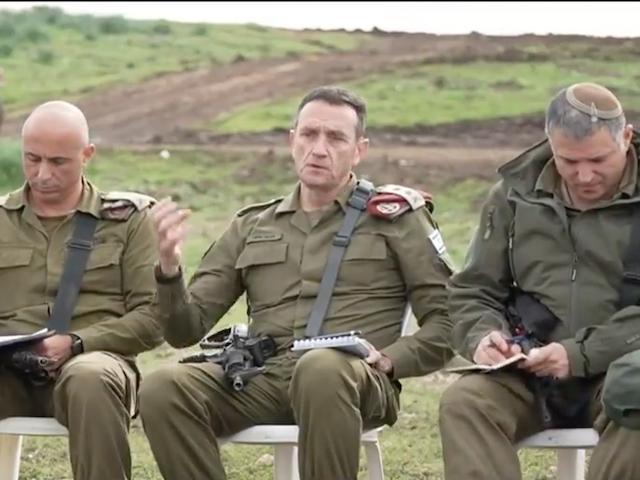In an alarming escalation of regional tensions, Herzi Halevi, the Chief of Staff of the Israel Defense Forces (IDF), has expressed serious concerns about the increasing likelihood of a full-scale war with Hezbollah, the Iran-backed terrorist organization based in Lebanon. This alarming development follows the outbreak of the Israel-Hamas conflict in early October 2023.
During a strategic visit to northern Israel, where he observed a military drill involving reservists, Halevi highlighted the escalating risk of conflict with Hezbollah in the coming months. His statement underscores the tense atmosphere following sporadic cross-border fire incidents since October 8, 2023, coinciding with the commencement of hostilities between Israel and Hamas.
After visiting soldiers simulating a ground offensive in Lebanon, IDF Chief of Staff Hertzi Halevi says the likelihood of a conflict in the north with #Hezbollah is imminent pic.twitter.com/ifjm6Q7KMX
— i24NEWS English (@i24NEWS_EN) January 18, 2024
Drawing from recent combat experiences in Gaza, Halevi stressed the vital need for heightened preparedness. The ongoing military exercises in northern Israel are crucial for ensuring the readiness of IDF forces in this volatile region. Israeli casualty figures report the tragic loss of nine soldiers and six civilians, victims of attacks from across the Lebanese border. Hezbollah has acknowledged the death of 162 of its fighters during the same period.
The Chief of Staff's remarks also focused on the IDF's commitment to facilitating the safe return of over 80,000 Israelis displaced from the north due to Hezbollah's relentless attacks. He warned that any conflict with Hezbollah would prompt a rapid and decisive Israeli response, potentially more forceful than the counteroffensive launched against Hamas.
Halevi's comments came in the wake of a successful IDF operation against a Hezbollah terror cell in southern Lebanon, responsible for a rocket barrage targeting the northern Israeli town of Rosh Hanikra. The swift Israeli retaliation led to the neutralization of the terror cell, with Hamas, through its Lebanese branch, claiming responsibility for the attack and acknowledging the loss of one member in the Israeli strike.
Hezbollah could turn the entirety of Lebanon into a war zone, IDF Chief of Staff Herzi Halevi said in a Saturday evening address.#Lebanon | #Israel https://t.co/b0TWo2IArk
— The Jerusalem Post (@Jerusalem_Post) January 13, 2024
In response to these provocations, the IDF executed several airstrikes in southern Lebanon, destroying a Hezbollah-operated rocket launching site and other militant infrastructure. Since the onset of the Gaza conflict, five Israeli civilians have been killed due to skirmishes with Hezbollah militants, along with 10 soldiers and reservists.
The intensifying hostilities along the Israeli-Lebanon border have raised concerns about a broader regional conflict, potentially engulfing the entire area in chaos. Adding to the complexity, the Houthi rebels in Yemen, also backed by Iran, have launched attacks against shipping vessels in the Red Sea, supporting Hamas and threatening vital global supply routes.
Despite international pressure, including their re-designation as a terrorist organization by the United States, the Houthis have vowed to continue their assaults on Israeli-linked ships. These actions align with the broader strategy of Iran-backed terror groups, contributing to regional instability.
Iran, represented by its Foreign Minister Hossein Amir-Abdollahian, has linked the cessation of violence to the resolution of the Gaza conflict. Speaking at the World Economic Forum in Switzerland, Amir-Abdollahian suggested that ending the "genocide in Gaza" could lead to a broader pacification in the region. Additionally, he mentioned ongoing discussions aimed at a peace agreement involving Yemeni and Saudi leaders, crucial for Iran given its reliance on the affected oil trade routes. This complex web of regional conflicts, fueled by ideological and strategic rivalries, poses a significant challenge to stability and peace in the Middle East.


